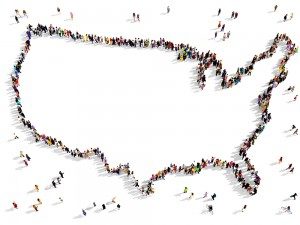Sometimes, dreams really do come true. In June, I called for knowledge equality through a new, crowd-sourced effort to specify what all of our children should have the opportunity to learn. Now, a similar project is underway. Eric Liu, of the Aspen Institute’s Citizenship and American Identity Program and Citizen University, is calling on all of us to determine what every American ought to know. Inspired by E. D. Hirsch, Liu is cultivating a shared body of knowledge that honors our diversity while forming a common bond. As Liu wrote:
It is indeed necessary for a nation as far-flung and entropic as ours, one where rising economic inequality begets worsening civic inequality, to cultivate continuously a shared cultural core. A vocabulary. A set of shared referents and symbols….
Just because an endeavor requires fluency in the past does not make it worshipful of tradition or hostile to change…. As Hirsch put it: “to be conservative in the means of communication is the road to effectiveness in modern life, in whatever direction one wishes to be effective.”
Hence, he argued, an education that in the name of progressivism disdains past forms, schema, concepts, figures, and symbols is an education that is in fact anti-progressive and “helps preserve the political and economic status quo.” This is true. And it is made more urgently true by the changes in American demography since Hirsch gave us his list in 1987….
It’s not enough for the United States to be a neutral zone where a million little niches of identity might flourish; in order to make our diversity a true asset, we need those niches to be able to share a vocabulary. We need to be able to have a broad base of common knowledge so that our diversity can be most fully activated….
The [cultural literacy] list for our times can’t be the work of one person or even one small team. It has to be everyone’s work. It has to be an online, crowd-sourced, organic document that never stops changing, whose entries are added or pruned, elevated or demoted, according to the wisdom of the network….
And indeed, on the website whateveryamericanshouldknow.org, we are starting just such an experiment with an online survey.

Defining America, one contributor at a time (image courtesy of Shutterstock).
As I write, the top twenty items are focused on history and civics, with just a few hinting at science, engineering, mathematics, and economics—and nothing on the arts. I hope this is just a temporary byproduct of the effort being announced in Democracy, not a true indicator of what Americans think we ought to know. Responsible citizenship certainly requires knowledge of history and a strong moral compass for improving the human condition—but it also requires deep knowledge of our natural world and a desire to make ourselves better stewards.
The beauty of this endeavor is that it prompts each of us to consider what we need and ought to know, giving each an equal voice. The more of us who participate, the more valuable this project becomes. So, over the next few weeks, I hope you will contribute your top ten, and ask your family and friends to contribute as well.